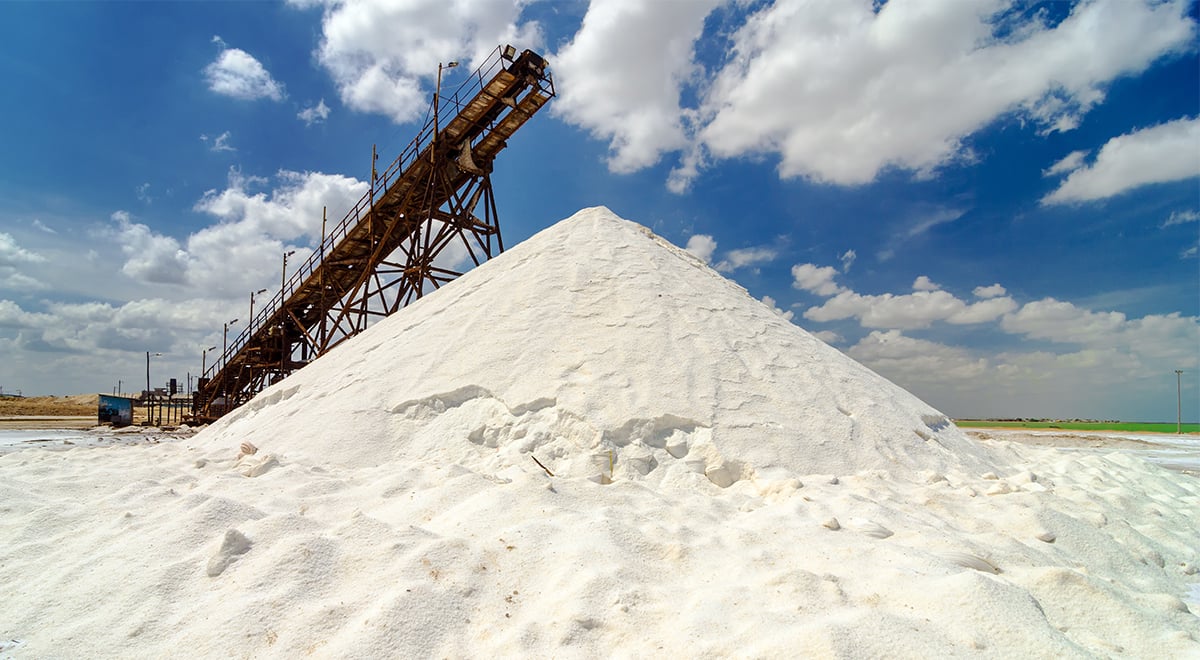Vynova is Europe’s leading supplier of potassium derivatives. We are the only supplier with two independent manufacturing facilities – in Tessenderlo (Belgium), and at our affiliated site of Potasse et Produits Chimiques (PPC) in Thann (France). Our state-of-the-art electrolysis process produces potassium hydroxide (KOH) in liquid form, which is then used as raw material for KOH solid as well as potassium carbonate (K2CO3).
The primary raw material we use for potassium derivative production is industrial grade potassium chloride (KCl), also known as potash.
Mining KCl from the earth
Potash is mined from the ground using one of the two following techniques: traditional or solution mining. Traditional mining involves underground blasting and then collecting the resulting muck pile for processing on the surface. Solution mining involves injecting water through solvent (salt) rock, which collects in caverns in the ground as saturated brine. A second pipeline is then used to draw the saturated brine to the surface.
KCl is commonly found in soil along with other minerals. The mining process therefore delivers a product containing other salts that must be removed in order to purify the KCl concentration. One common mineral ore extracted by mining is called sylvinite, which contains both KCl and sodium chloride (NaCl).
Different grades of KCl
The grades of KCl are categorised according to their particle size and K2O content. Fertiliser grades have a K2O concentration in the 40 to 60% range, while industrial grades have >62% K2O.
Between 90 and 95% of the potash extracted from mines is used in fertiliser production. It can be used independently, or blended into fertiliser formulations designed to match the required nutrients in the soil. The remaining 5 to 10% of potash is purified further for industrial applications using a process called thermal dissolution. This the form of KCl we use at Vynova as a raw material for our potassium derivatives production.
The global KCl supply chain
By far, the biggest producer of potash in the world is Canada, followed by Russia and Belarus. The largest western European producer is Germany.
Even though the world’s potash production seems high at over 69 million tonnes in 2017, the supply of industrial grade potash is limited as not all producers are in a position to perform the requested purification steps.
Logistics of KCl supply
As most of the industrial-quality KCl is produced outside of western Europe, it is key to monitor the supply chain to ensure supply reliability for K derivative production.
A logistics network is therefore essential to ensuring the supply of raw materials to the potassium derivative facilities where they are needed. Our Tessenderlo plant in Belgium is well connected to shipping routes and major road infrastructure, as is our affiliated site in Thann, France.
Connect with Vynova for Potassium Derivatives
Find out more about Vynova potassium derivatives here. If you have questions about our comprehensive line of K derivatives, our experienced sales team will be happy to respond to your enquiry.




